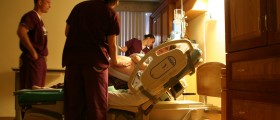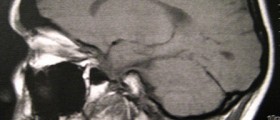
Down syndrome is a condition which manifests through a series of physical and mental disorders affecting a person. It is caused by a chromosomal disorder, where there is an extra chromosome present on the 21st one. Therefore, this condition is also referred to as trisomy 21. Often, tests can be done on pregnant women, helping them to find out whether their child is suffering from Down syndrome or not.
Additional Information on Down Syndrome
People who suffer from Down syndrome are usually mentally impaired, with lower cognitive abilities than normal. Also, they may develop a severe mental disability at some point in their lives. As for the statistics, about one child in every 1,000 born suffers from Down syndrome. So far, we know that the age of the mother is very important for preventing this condition since women who are older than 35 have significantly increased chances of giving birth to a baby with Down syndrome.
Down syndrome patients are prone to cardiovascular problems, hearing and vision impairment, gastrointestinal dysfunctions, ear infections, sleep apnea and thyroid problems. However, through a carefully monitored treatment which takes place since the moment of birth, people with Down syndrome can manage living healthy and happy lives. Average lifespan of these individuals is about 60 years, under perfect management of the condition.
In up to 92% of cases, Down syndrome is triggered by an extra chromosome on the 21st chromosome. However, in up to 6% a translocation of chromosomes 15 (21 or 22) may be responsible for the onset of this disorder. Also, up to 3% of Down syndrome patients suffer from mosaicism, having cells with both faulty and healthy chromosomes.
There are certain physical features which make Down syndrome patients different from others. Basically, they have a small, flat nose, highly arched palate, excessively flexible joints, a gap between the big toe and the next one, muscle weakness, separated sagittal suture and oblique palpebral fissures. Additionally, they may have just a single crease on their palms, small ears, a tongue sticking out and dry skin, along with white spots on the retina.
Down Syndrome and Nursing
During the nursing process of a baby with Down syndrome, the mother needs to seek medical attention in order to pinpoint any health problems and get adequate treatment for helping her child overcome these. Also, the family needs to develop a plan of care and education which will greatly resemble those made in case of mental retardation. Both parents and the rest of the family need to learn everything about this condition, knowing how to react and how to adequately take care of a child with Down syndrome. Ear and nose infections, being quite common, need to be prevented or taken care of timely.
During feeding, a spoon should be used and the food should be placed in the back or the side of the mouth. The tongue may get in the way of the food, so you will have to avoid this. Fiber-rich food and plenty of fluids are recommended, along with proper skin care and infection prevention measures.

















Your thoughts on this
Loading...